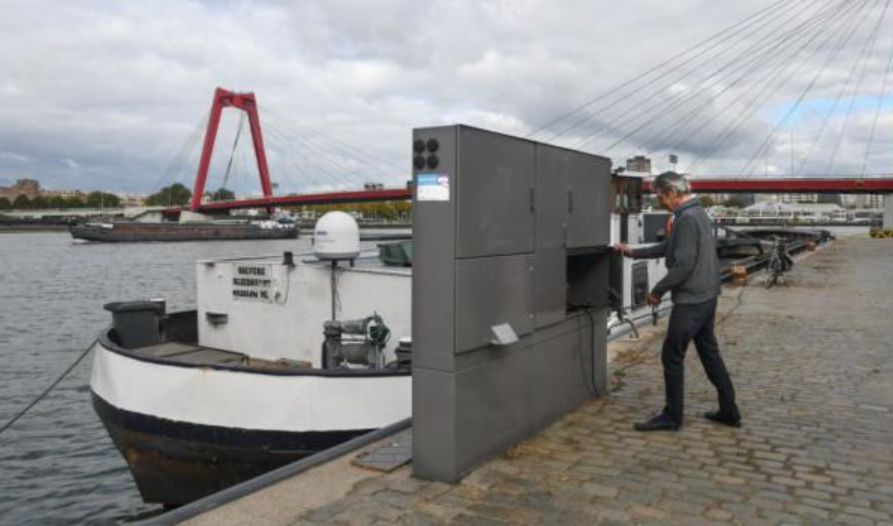The Netherlands – A pilot project with a mobile facility for shore-based power on hydrogen for Cargow’s MPP vessels arriving twice a week is set to begin in late 2022 at the C. Steinweg – Handelsveem (Steinweg) Beatrix terminal in the Eemhaven area near Rotterdam.
In February, the tendering process will begin. The pilot is part of a collaboration between the Municipality of Rotterdam and the Port of Rotterdam Authority to increase the use of shore-based power in the port.
The collaboration began in December 2019, when a pilot project at Parkkade was launched to provide small sea-going vessels with electricity from the quay, also known as’shore-based power.’ The crew will no longer need to use the on-board diesel generators as a result of this method, resulting in less pollution and noise.
Several marketable concepts were put through real-world tests over the course of the five-month pilot. Data on power consumption, as well as emissions and sound levels, were gathered. The pilot demonstrated that using mobile concepts, it is technically feasible to provide shore-based power to seagoing vessels. The findings will be used to establish a permanent connection at Lloydkade, as well as one at Parkkade in the future. These findings are also a reason for mobile shore power trials to begin soon at the Steinweg location in Beatrixhaven.
Cargow / Steinweg
The integration of any existing or future shore-based power has not been taken into account in most original terminal designs. Cranes, crane tracks, and bollards nearby frequently obstruct the installation of shore-based power equipment and cabinets, making connecting the cables between vessels and terminals a difficult task. The municipality’s shore-based power project team and PoR want to set up a pilot at Steinweg as a follow-up to the Parkkade pilot to identify and remove such obstacles. In the context of the energy transition, an autonomous, mobile installation using non-fossil fuel (hydrogen) will be tested.
At sea port terminals, where investments in shore-based power are less obvious, mobile solutions are required. A cable management system that can be deployed flexibly is also being tested. At quays with limited space, the system should optimize the power supply between the quay and the vessel. Furthermore, measures are being taken to gain a better understanding of vessel consumption, to allow for technical design optimization, and to limit investment costs in order to make quayside shore-based power possible.
Steinweg will clear space at the terminal to allow the pilot to run smoothly. It will also apply for a permit and fence off the work area to ensure a safe working environment. In operational conditions, Cargow will convert two of its vessels to run on shore-based power. The municipality and the Port Authority will compensate Steinweg and Cargow in part for the project.
Shore-based power
Inland shipping has been using shore-based power in Rotterdam on a large scale for over a decade. Because electricity consumption is high and these vessels call at a variety of ports, shore-based power for sea-going shipping is complicated. Furthermore, many seagoing vessels lack the necessary connections to use shore-based power. They are collaborating with other ports as part of the shore-based power program to develop connection standards for smaller sea-going vessels.
Furthermore, the container ports of Rotterdam, Antwerp, Bremen, Hamburg, and Haropa (including Le Havre) are coordinating their plans for shore-based power, resulting in standardization, lower costs, and faster adoption. The Stena Line terminal in Hoek van Holland in the Port of Rotterdam has shore-based power. At Landtong Rozenburg, Heerema will also put in place a shore-based power installation for its offshore vessels this year.
According to DNV GL and the Port Authority’s calculations, the total energy demand of seagoing vessels in the port is between 750 and 850 GWh. This is the equivalent of 200,000 households’ energy consumption. This implies that there is a lot to gain in terms of air quality, livability, and climate. The Port of Rotterdam is preparing for the transition to cleaner shipping with a collaborative strategy.





